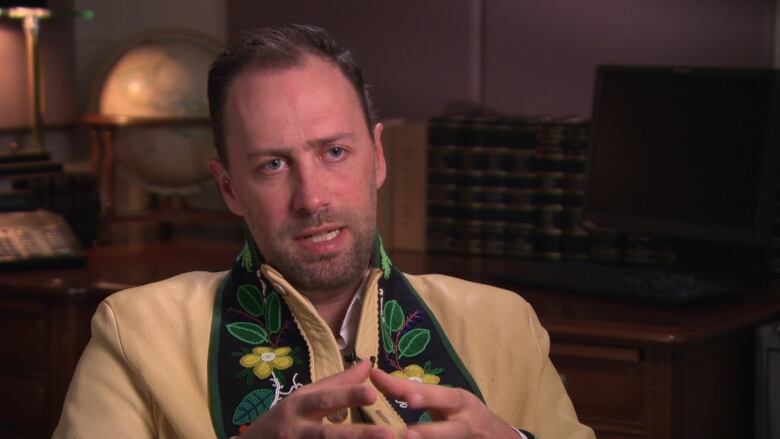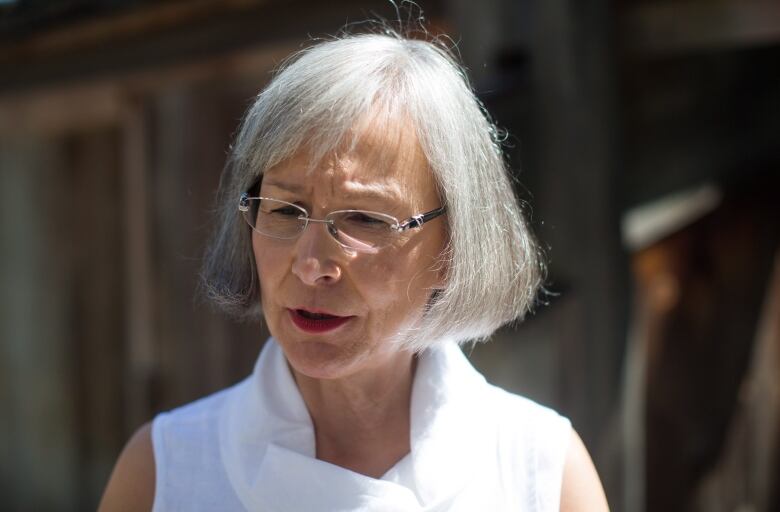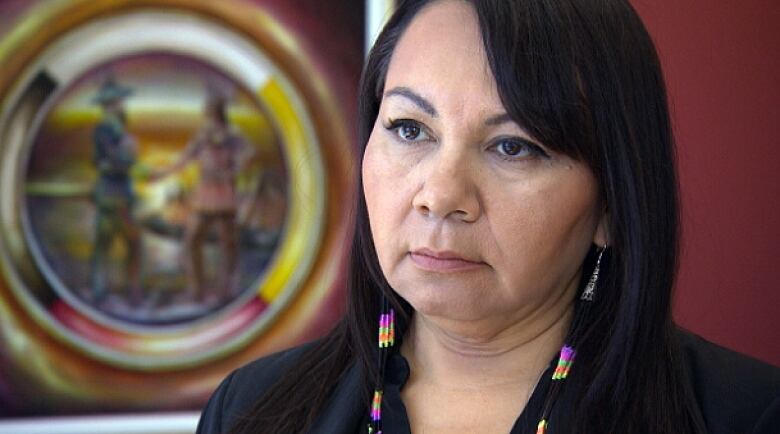Ex-TRC official urges patience amid criticism of missing and murdered Indigenous women inquiry
Working quickly in a large bureaucracy can be daunting, Ry Moran says

As criticism of the national inquiry into missing and murdered Indigenous women and girls mounts including a call for the head of the inquiry to resign aformer official with the Truth and Reconciliation Commission of Canada says that it's hard to imagine how challenging it is to carry out such an endeavour.
"These commissions are a lot of work. They're very complicated. There's a lot of obstacles put up in your wayand you're under the microscope," said Ry Moran, who was director of statement gathering with the TRC and now heads the National Research Centre for Truth and Reconciliation, based at the University of Manitoba.
"I think the big challenges are oftentimes associated with trying to move quickly in a very complicated bureaucracy," which he said can be "very rigid and is meant precisely to create stability rather than nimbleness."
Moran made the comments on CBC Radio a day after the embattledhead of the national inquiry into missing and murdered Indigenous women defended the progressit has made.
'Lightning speed'
Marion Buller announced Thursday the inquiry will hold nine community hearings across Canada this fall, amid controversy over the resignation of its executive director and complaints from families about delays and poor communication.
She also hinted at the difficulties of navigating bureaucratic hurdles.

"Things are not drifting. We have to put this in the right context," Buller said. "In eight months, we hired staff, we opened offices, we put life to our terms of reference and we held our first hearing. In my view that's lightning speed, especially when we had to comply with government policies and rules."
Buller was asked about comments made by Manitoba Keewatinowi Okimakanak Grand Chief Sheila North Wilson, who called for Buller to step down and the inquiry to restart.
"I don't intend to resign," Buller replied firmly.
Calls to resign
On Friday, North Wilson said she's worried that Buller doesn't have the confidence needed to be an effective chief commissioner.
"I think we need a leader that is confident, that is chosen somehow by grassroots people, and ultimately someone that has a heart for this issue, and I don't know if this person does," North Wilson told CBC.

"I don't think an extra year or two is going to hinder what we're trying to achieve."
The federal government gave the commissioners a budget of about $53.9 million and asked them to complete their work by the end of 2018, with an interim report expected this November.
Buller reiterated on Thursday that she intends to ask the federal government for more time and money. However, she said she and her research team have already begun drafting the interim report and plan to submit it on time.
Moran said that in the case of the Truth and Reconciliation Commission, it was granted two extensions one for 12 months and the second for an additional six months.
The commission documented the testimony of more than 6,000 Indigenous residential school survivors in its final report. It included 94 calls to action aimed at redressing the relationship between Indigenous and non-Indigenous Canadians
With files from The Canadian Press












_(720p).jpg)


 OFFICIAL HD MUSIC VIDEO.jpg)
.jpg)



























































































